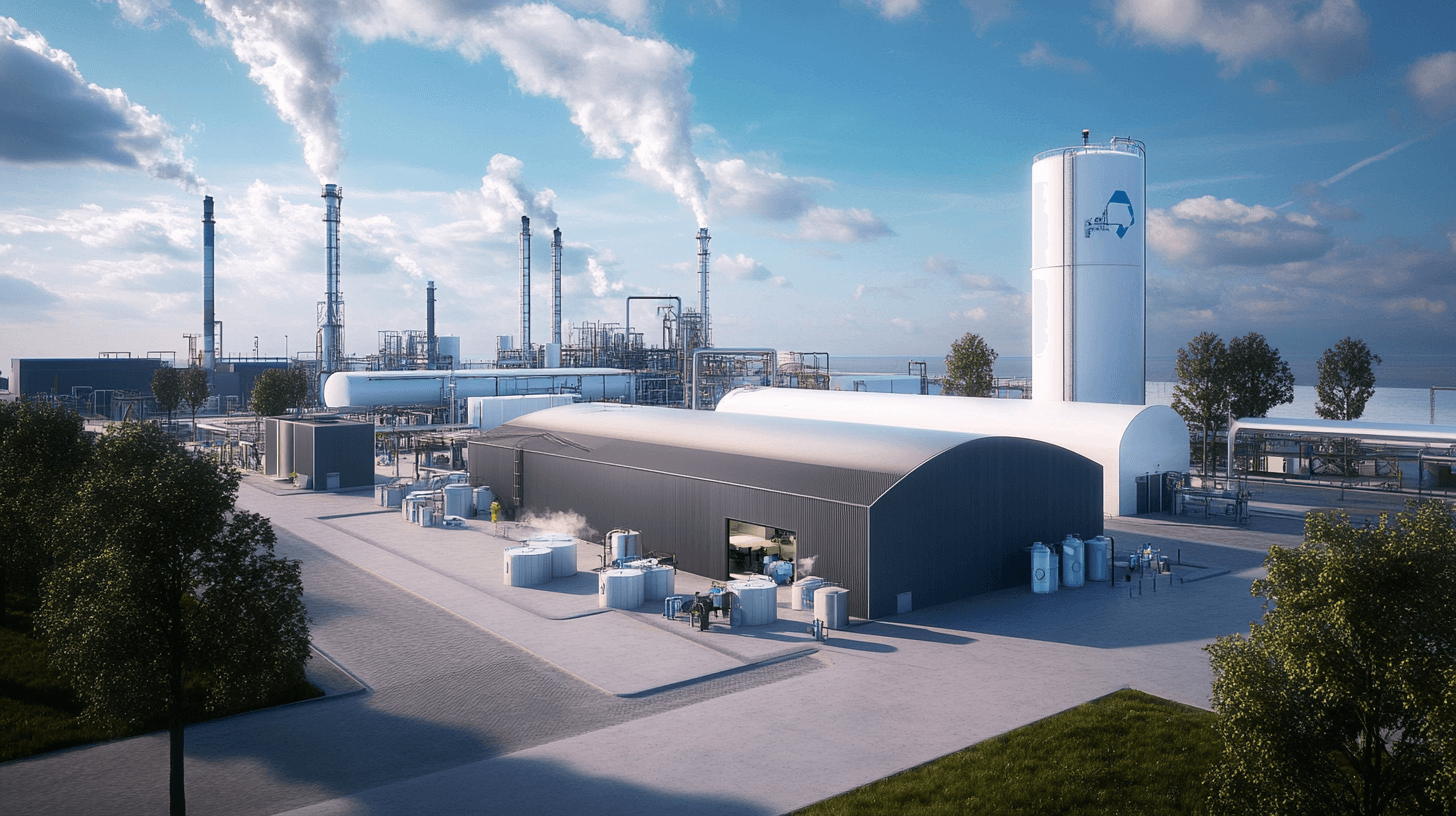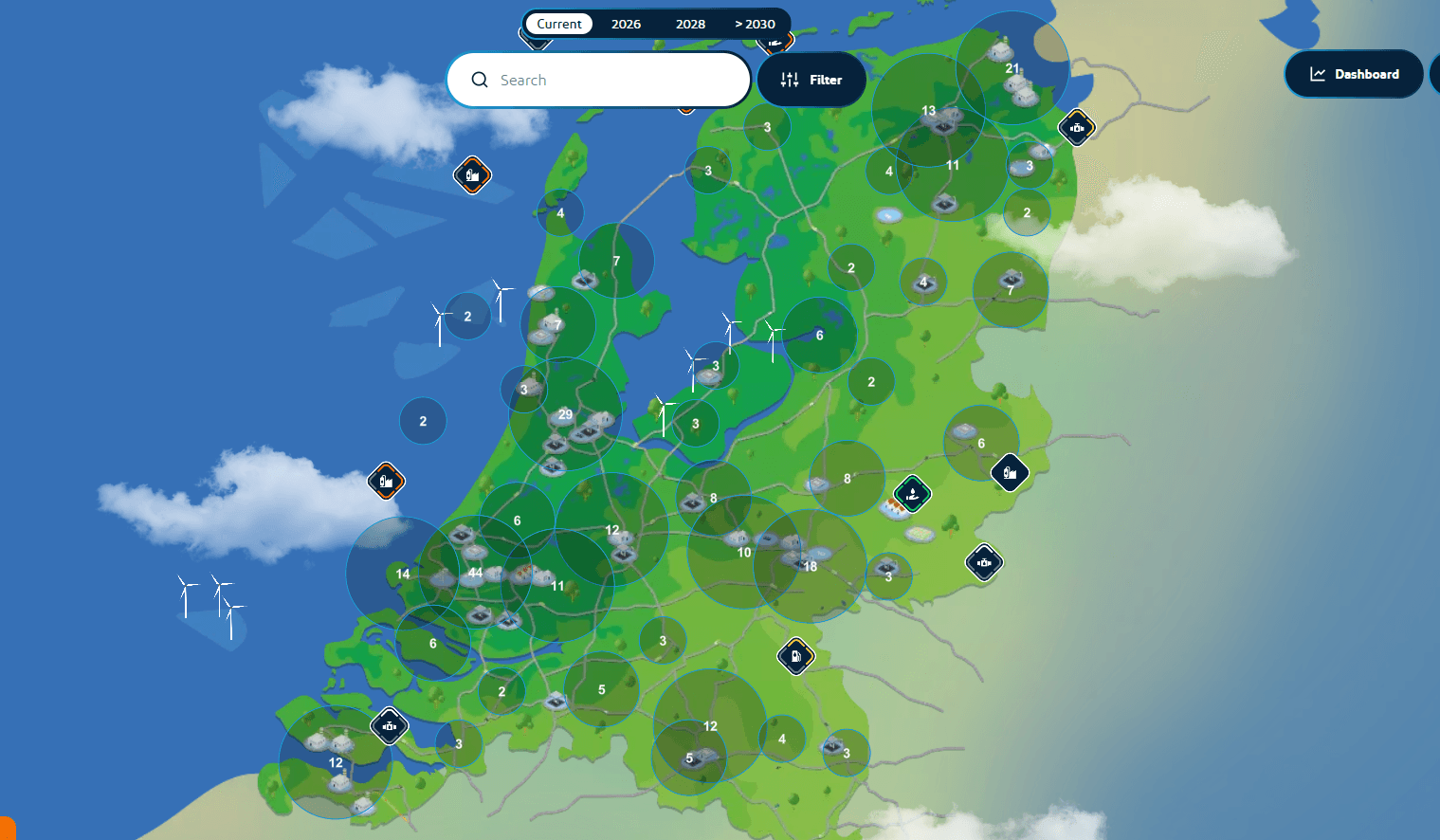Missie H2 is all in for giving impulse to the hydrogen economy
Missie H2 is an initiative to raise awareness and give impulse to the hydrogen economy in the Netherlands.
Published on December 2, 2024

AI-generated image
Mauro swapped Sardinia for Eindhoven and has been an IO+ editor for 3 years. As a GREEN+ expert, he covers the energy transition with data-driven stories.
Enabling a fully functioning hydrogen market by 2030—that’s Missie H2's vision. Another way to put it: Netherlands Hydrogen Nation 2030.
According to Michiel Bal (Gasunie), the potential is certainly there. “North Sea winds can help us produce lots of green hydrogen, and through our sea ports, we can import more from other continents. The existing gas pipelines and storage facilities can be repurposed as demand for hydrogen increases.”
Missie H2 is an initiative led by Gasunie, Shell Nederland, Remeha, Toyota, Port of Amsterdam, Groningen Seaports, Vopak, and Eneco to raise awareness and give impulse to the hydrogen economy. It started in 2019 and aims to capitalize on the opportunities in the hydrogen sector.
A Dutch hydrogen projects’ map
One of Missie H2's initiatives is creating a hydrogen map of the country. The map displays all the existing and upcoming hydrogen projects, giving an overview of how the infrastructure will look in 2030. It offers an overview of all actors involved in developing the hydrogen economy, including research and knowledge centers.
“It is the most up-to-date map with over 350 part-takers and shows that the hydrogen movement in the Netherlands exists and who’s part of it,” underlines Bal. A hydrogen dashboard also helps visualize both capacity growth and project developments. A news feed keeps visitors updated with the latest additions to the map.

MIssie H2's map
Top ambassadors
To carry their message, Missie H2 involved some of the best present and past Dutch Olympic athletes. Paris gold medal winner rowers Stef Broenink and Melvin Twellaar and legend swimmer Ranomi Kromowidjojo. “Athletes bring positive energy and are suited to forcing breakthroughs,” says Bal.
There are many similarities between the challenges top sportspeople face and hydrogen developments. Making bold choices and being dedicated to fulfilling goals are some of them.
A Missie H2 delegation also attended the Paris Olympic Summer Games, allowing it to cheer for its ambassadors and convene with other hydrogen stakeholders worldwide. In the buildup to the games, MissieH2 also gave its own hydrogen gold medals. Former climate minister for climate and energy Rob Jetten, Delft University of Technology’s student team Eco-Runner, and Hydrogen Europe secretary general Georgios Chatzimarkakis are among the awardees.
An action plan
Missie H2 also recently presented a hydrogen action plan with recommendations for the Dutch cabinet on stimulating and easing the transition toward a hydrogen economy.
The declaration stresses the need to keep working on decarbonization policies. If, on the one hand, the electrification of industries, mobility, and the built environment is seen as necessary, on the other, stimulating the creation of a solid hydrogen supply chain. “Industry has a great need for hydrogen, as of fuel, and raw materials,” the declaration reads.
Based on four mottos, the plan considers cooperation among the stakeholders and a clear long-term vision as essential ingredients for a sustainable energy system. At the same time, the agenda also calls for a thorough approach and interpretation of Draghi’s report on European competitiveness.
The gateway of hydrogen transition
Bal resonates with this idea, seeing tighter cooperation between companies and governments as critical to fuel acceleration and scaleup of hydrogen developments, which can be positive for all. “We believe energy costs will be higher without hydrogen. Once you have higher quantities in the market and clear legislation in place, then a level playing field is created. So it can be competitive with fossil fuels,” he adds.
The cooperation spirit extends beyond national borders. “The Netherlands is positioned to become the hydrogen nation, yet we can learn from our neighbors, such as Germany and France, who made many steps forward in the past years. The energy transition does not stop at the border. Our ports and facilities can be useful to others, too. If we tap into the opportunities, the Netherlands can become Europe’s gateway for the hydrogen transition,” Bal concludes.
